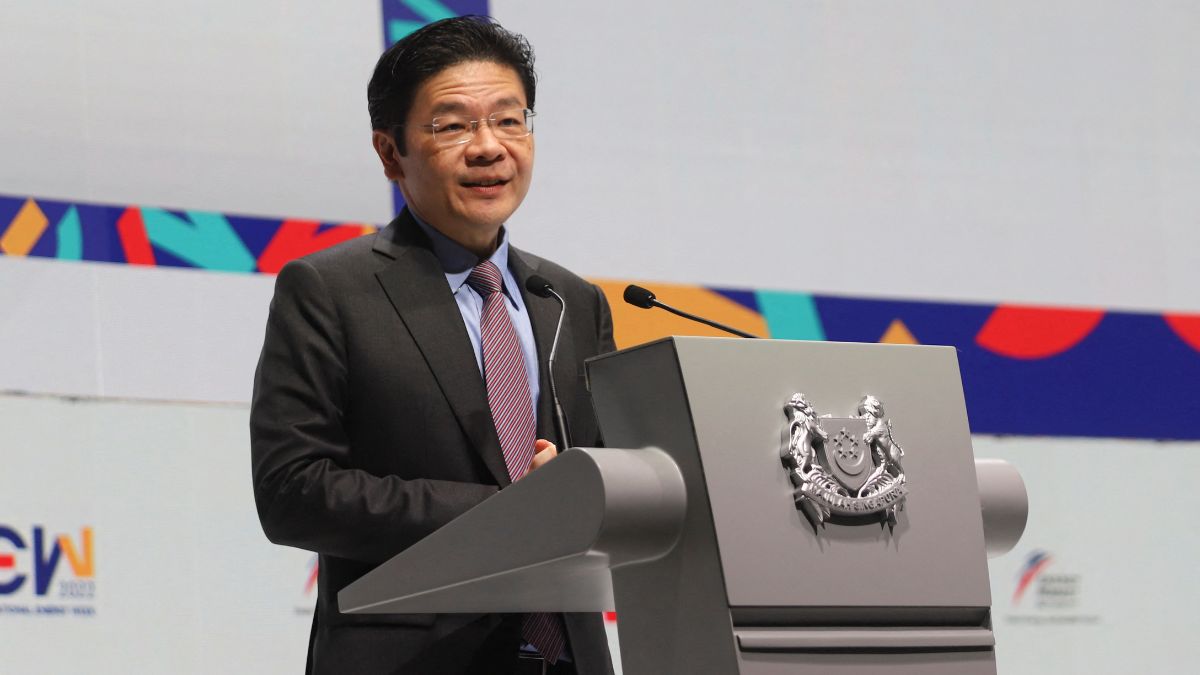Lawrence Wong, set to assume the role of Singapore’s prime minister on Wednesday, has announced that he will retain his position as finance minister, to ensure ‘stability’ during the transition period.
“Continuity and stability are paramount, especially as we near the end of this government’s term,” Wong stated during a press briefing on Monday. “To ensure a seamless transition, I have decided to retain current cabinet ministers in their current roles until the end of the term.”
Wong, 51, who currently serves as Deputy Prime Minister, will succeed incumbent Prime Minister Lee Hsien Loong, 72, son of Singapore’s late founding father Lee Kuan Yew. Wong has been overseeing the finance portfolio since 2021.
Joining Wong as Deputy Prime Ministers will be Gan Kim Yong, 65, the current Trade and Industry Minister, and Heng Swee Keat, 63, who remains in his post. Singapore traditionally appoints two deputies to the head of government.
Gan will also take on the role of chairman of the Monetary Authority of Singapore, the country’s central bank. He previously worked alongside Wong in leading Singapore’s coronavirus multi-ministry taskforce during the COVID-19 pandemic. Heng, initially slated to succeed Lee as prime minister, stepped aside in 2021, citing his age, paving the way for Wong’s ascension to the role.
“This cabinet reshuffle prioritises continuity and stability amid the generational change in leadership,” remarked Eugene Tan, an associate professor at Singapore Management University. Gan’s promotion to the deputy position came as a surprise, Tan noted, highlighting the focus on maintaining stability.
Impact Shorts
More ShortsOutgoing Prime Minister Lee will continue to serve in the cabinet as a senior minister.
In a letter to Lee, Singapore President Tharman Shanmugaratnam praised his leadership during times of global crises, including the 2008 Global Financial Crisis and the COVID-19 pandemic, crediting him for steering the nation to emerge stronger.
Wong’s decision to retain most of the existing cabinet reflects a commitment to stability, with further changes expected after Singapore’s next election, scheduled by November 2025.


)

)
)
)
)
)
)
)
)



